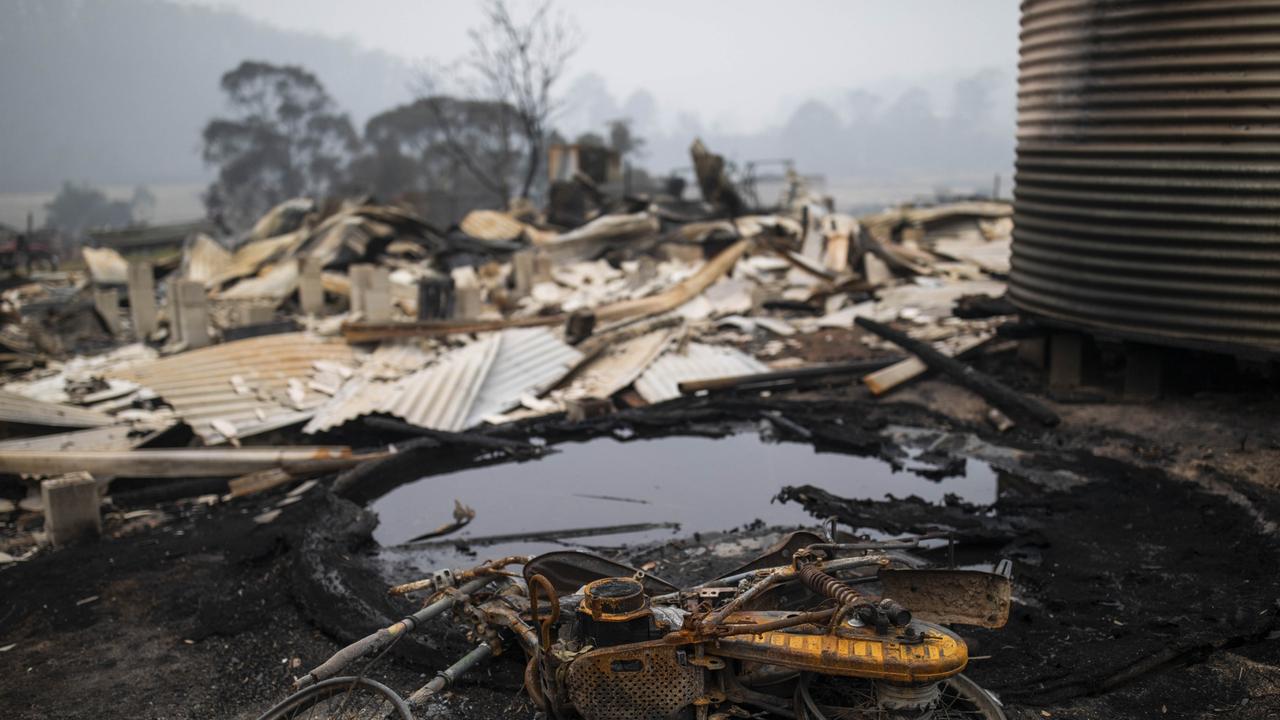The critical things Australians must to do check their home is insured
Natural disasters can cause huge problems for homeowners and should prompt Australians to check their insurance coverage.
NATURAL disasters including the bushfire crisis and a severe hailstorm have resulted in tens of thousands of Australians making insurance claims in recent months.
On top of this, cyclone season from November to April in northern Australia often brings heartache to property owners left with damage.
Insurance experts have urged homeowners to check up on their policies to ensure they have cover – and enough – if something unexpectedly goes wrong.
Latest figures from the Insurance Council of Australia show the industry has received 11,272 bushfire-related claims since September totalling a massive $995 million.
In addition to this, a severe hailstorm in southeast Queensland in November resulted in 22,000 claims being lodged worth an estimated $166 million.
Insurance Australia Group’s executive general manager of short-tail claims, Luke Gallagher, said it was vital homeowners checked their cover at least once a year.
“People who own their homes, people who live in apartments and renters may require different insurance so it’s important to assess the type of insurance best suited to your needs,” he said.
“Some homeowners set and forget their home insurance every year and don’t consider rising replacement costs or home upgrades and extensions.”
Mr Gallagher said one of the most crucial things to check was the sum insured – this is the total amount you are covered for to replace your home and contents as well as demolition and rebuilding costs.

Total replacement cover includes all the costs to rebuild your home to the standard is was prior to the event. However, often a financial limit is set.
ICA education initiative understandinsurance.com.au’s spokeswoman, Lisa Kable, said homeowners should also understand embargoes that could prevent someone from taking out a policy.
“It typically prevents insurance being purchased when an event is known to be extremely likely or already impacting an area,” she said.
“Some insurers may still sell a policy in these circumstances but may stipulate a time period within which they will not accept a claim against the policy, for example 72 hours or seven days.”
If you are stopped by one insurer from buying a policy, Ms Kable suggests trying a different insurer.
The important things to consider before donating to the bushfire appeal
Suncorp executive manager of consumer products Joshua Kelland said if you did have to make a claim, having paperwork was not necessary as for situations like a bushfire it could be impossible to retrieve.
“You don’t need to have a copy of your insurance policy to lodge a claim – your insurer will have all your details on file,” he said.
“If you can’t remember who your insurer is get in touch with the Insurance Council of Australia and it will help you find out.”
Insurance can cost thousands but Mr Kelland said most people chose to pay their premiums annually.
PROTECT YOURSELF
• Check your insurance cover at least once a year.
• Make sure it’s up-to-date and includes any improvements.
• Read the product disclosure statement.
• Understand embargoes.
• Always be honest to your insurer.
• Know the difference between sum insured and total replacement.
• The two main types of contents insurance are replacement value and new for old.
• If making a claim call your insurer as soon as possible.
• Take photographs of damaged goods or contents if you can.




